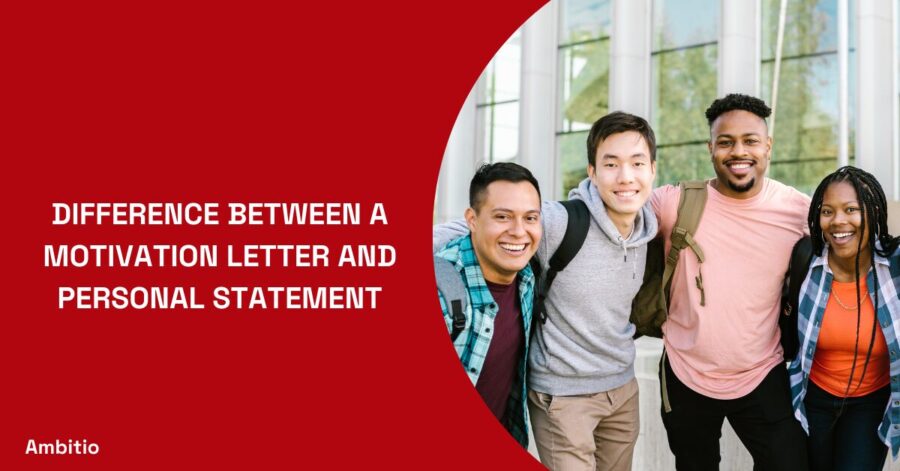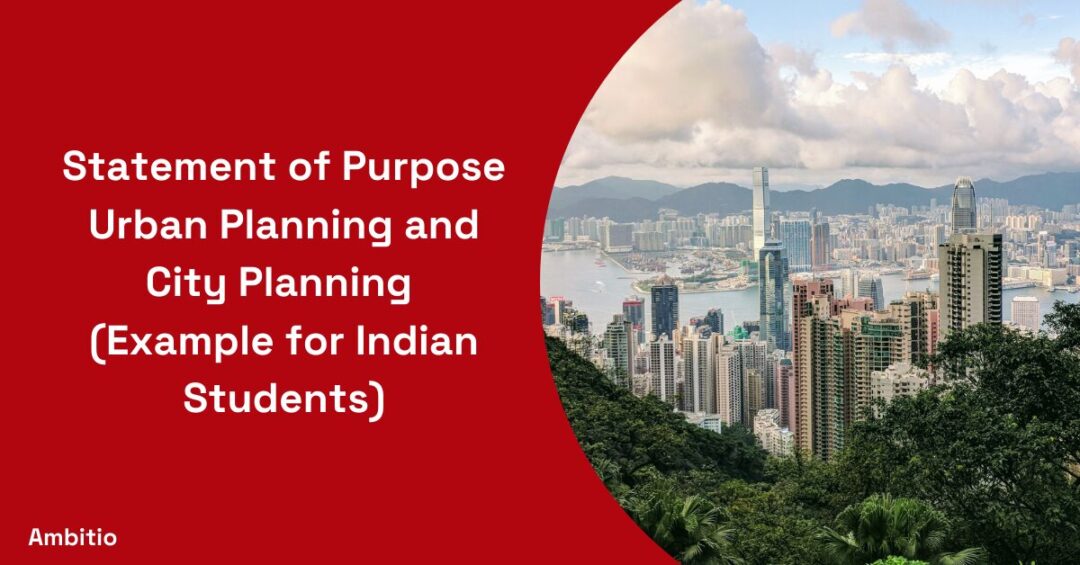12 December 2024
6 minutes read
Understanding the Difference Between a Motivation Letter and Personal Statement

Introduction
Navigating through college admissions and scholarship applications can be a challenging journey, especially when it comes to articulating your aspirations and qualifications.
Two critical elements in this process are the personal statement and motivation letter. Although they may seem similar, understanding their distinct purposes and crafting them effectively can significantly influence the success of your application.
This comprehensive guide aims to demystify these documents, providing insights and tips on how to effectively articulate your story and ambitions.
The Essence of a Personal Statement
Crafting Your Narrative
A personal statement is your canvas to paint a picture of who you are beyond grades and test scores. It is an opportunity to narrate your journey, highlighting personal experiences, challenges, and triumphs.
This document should reflect your personality, values, and the driving forces behind your aspirations. To begin, brainstorm key moments in your life that have shaped your identity and perspective.
These could include pivotal experiences, influential relationships, or significant achievements. The goal is to provide the admissions committee with a holistic view of your character and potential.
Beyond Academics: Showcasing Personal Growth
While academic achievements are important, a personal statement should also delve into personal growth and development. Reflect on how your experiences have cultivated resilience, empathy, creativity, or leadership skills.
These attributes are invaluable in an academic setting and demonstrate your readiness to contribute to a university community.
Decoding the Motivation Letter
Aligning with Academic and Career Goals
The motivation letter, often referred to as a statement of purpose or SOP, is a more targeted document. It’s your platform to articulate why you are drawn to a specific program or opportunity.
This letter should align your academic background, research interests, and career objectives with the offerings and ethos of the program you are applying to.
In this letter, specificity is key. Discuss particular courses, faculty members, or research opportunities within the program that resonate with your interests.
Explain how these align with your long-term goals and how your previous experiences have laid the foundation for your future pursuits.
Demonstrating Research and Professional Aspirations
Your motivation letter should also reflect your understanding of the field or industry you wish to enter. Discuss current trends, challenges, and innovations, and how you aspire to contribute to the field.
This not only shows your passion and knowledge but also your potential to make meaningful contributions.
The Art of Personalization in Application Documents
Tailoring Your Story to Each Application
One key aspect of writing effective personal statements and motivation letters is personalization. Each application should be crafted with the specific institution and program in mind.
Research the university’s values, mission, and what they look for in a candidate. This research will guide you in tailoring your narrative to resonate with the admissions committee.
Reflecting Institutional Values and Culture
Your documents should reflect an understanding of the institution’s culture and values. For instance, if a university is known for its commitment to community service, highlight your involvement in similar activities.
This demonstrates not only your alignment with the university’s values but also your ability to contribute to its community.
Addressing Challenges and Overcoming Obstacles
In your journey towards academic and professional success, addressing challenges and overcoming obstacles is crucial. Here’s how to effectively incorporate these elements into your personal statement or motivation letter:
- Identify Key Challenges: Begin by identifying the significant challenges you’ve faced. These could be personal, academic, or professional obstacles that have had a profound impact on your journey. It’s important to choose challenges that have contributed meaningfully to your growth and development.
- Describe the Obstacle Clearly: Provide a clear and concise description of the obstacle. This helps the reader understand the context and the gravity of the challenge you faced. Be specific about the nature of the obstacle, whether it was a personal hardship, an academic setback, or a professional hurdle.
- Emphasize Your Response: Focus on how you responded to the challenge. Describe the actions you took to overcome the obstacle. This might include seeking help, developing new strategies, or pushing yourself out of your comfort zone. The goal is to highlight your resilience, adaptability, and problem-solving skills.
- Reflect on Personal Growth: Discuss the personal growth that resulted from overcoming these challenges. This could be in the form of newfound resilience, improved problem-solving skills, increased empathy, or a better understanding of your own strengths and weaknesses.
- Connect to Your Goals: Make a clear connection between the challenges you’ve overcome and your academic or career goals. Explain how these experiences have prepared you for the future challenges you might face in the program or career you are pursuing.
- Showcase Development of Skills: If applicable, highlight any skills or knowledge you gained as a result of overcoming these obstacles. For example, overcoming a personal challenge might have improved your communication skills, while overcoming an academic challenge might have enhanced your research or analytical abilities.
- Demonstrate Your Resilience: Use your experiences to demonstrate your resilience. Show the admission committee that you are capable of bouncing back from setbacks and that you have the tenacity to persevere in the face of adversity.
- Inspire with Optimism: Convey a sense of optimism and a positive outlook. Even when discussing challenges, it’s important to maintain a tone that is hopeful and forward-looking. This shows that you are not deterred by difficulties but are instead motivated by them.
- Avoid Over-Dramatization: While it’s important to be honest about the challenges you’ve faced, avoid over-dramatizing them. Stick to the facts and focus on the positive outcomes and lessons learned rather than dwelling excessively on the negative aspects.
- End with a Forward-Looking Statement: Conclude this section by looking towards the future. Discuss how these experiences have equipped you to handle future challenges and how they have influenced your career or academic aspirations.
By effectively addressing challenges and obstacles in your personal statement or motivation letter, you not only showcase your resilience and growth but also demonstrate your preparedness for the rigors of higher education or the professional world.
Remember, it’s not just about the challenges themselves, but how you’ve overcome them and what you’ve learned in the process that counts.
Balancing Personal Anecdotes and Professional Aspirations
The Interplay of the Personal and Professional
In both your personal statement and motivation letter, there’s a delicate balance to be struck between personal anecdotes and professional aspirations.
While personal stories provide a glimpse into your character, they should also tie back to your academic and career goals.
Connecting Personal Experiences to Future Goals
Link your personal experiences to your future goals. For instance, if you’re applying to a medical program, a personal story about a healthcare challenge in your family could be connected to your aspiration to improve healthcare systems.
This creates a cohesive narrative that underscores the continuity between your past experiences and future objectives.
For your Astronomy personal statement, click here
Concluding with Impact: Leaving a Lasting Impression
Crafting a Memorable Conclusion
The conclusion of your personal statement or motivation letter is your final opportunity to leave a lasting impression. Reinforce your enthusiasm for the program and your readiness to take on the challenges it presents.
Express your eagerness to contribute to the university community and your confidence in your ability to succeed.
The Future Vision
End with a forward-looking statement. Share your vision for how the program will shape your future and how you, in turn, plan to contribute to your field.
A strong conclusion not only reiterates your fit for the program but also leaves the reader with a clear understanding of your aspirations and potential impact.
Conclusion
Crafting a compelling personal statement and motivation letter is a critical step in the journey toward academic and professional advancement. These documents are more than mere formalities; they are reflections of your personality, aspirations, and potential.
By understanding their distinct purposes and effectively articulating your story and goals, you can enhance the impact of your application and move closer to achieving your academic and career objectives.
Remember, each document is a unique opportunity to showcase different facets of your journey and how they align with your future aspirations.
With careful thought and a clear strategy, you can create powerful narratives that resonate with admissions committees and pave your way to success.
FAQs
What is the main difference between a personal statement and a motivation letter?
A personal statement is a broader document that describes your overall personality, experiences, and goals, while a motivation letter is more focused on how a specific program or opportunity aligns with your academic and professional aspirations.
Can the same document be used as both a personal statement and a motivation letter?
While there might be some overlap in content, it’s important to tailor each document to its specific purpose. A personal statement should be more about you as an individual, whereas a motivation letter should be closely aligned with the specific program or opportunity.
How long should these documents be?
Both documents should be concise and to the point. Typically, they should not exceed one page, ensuring clarity and focus on the most relevant aspects.
What should be included in a motivation letter?
Your motivation letter should include your specific academic and professional interests, how they align with the program you’re applying to, and how your past experiences have prepared you for this next step.
Is it necessary to include personal anecdotes in a personal statement?
Yes, personal anecdotes can be very effective in a personal statement as they provide a more intimate glimpse into your life, making your application more memorable.

You can study at top universities worldwide!
Get expert tips and tricks to get into top universities with a free expert session.
Book Your Free 30-Minute Session Now! Book a call now




























